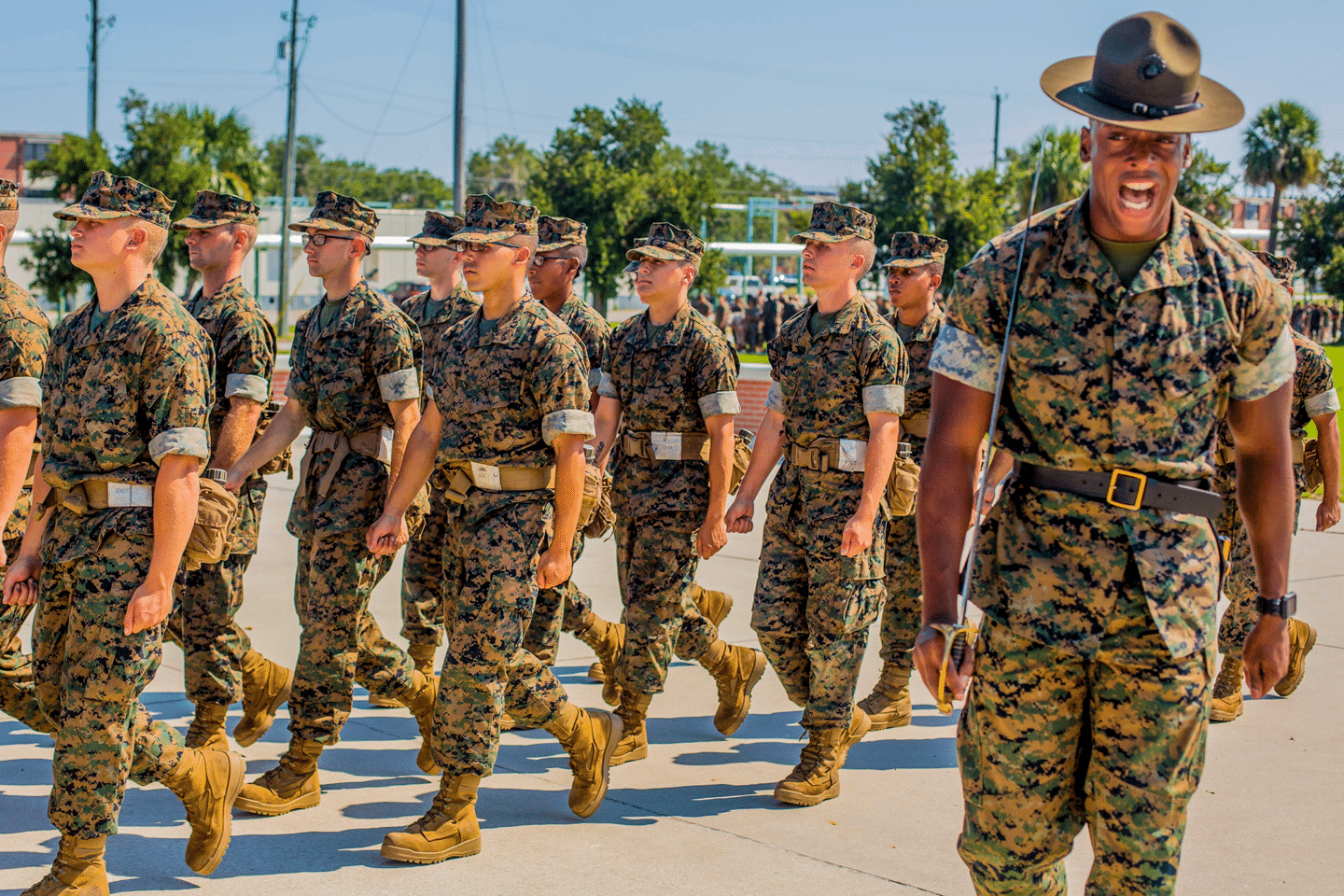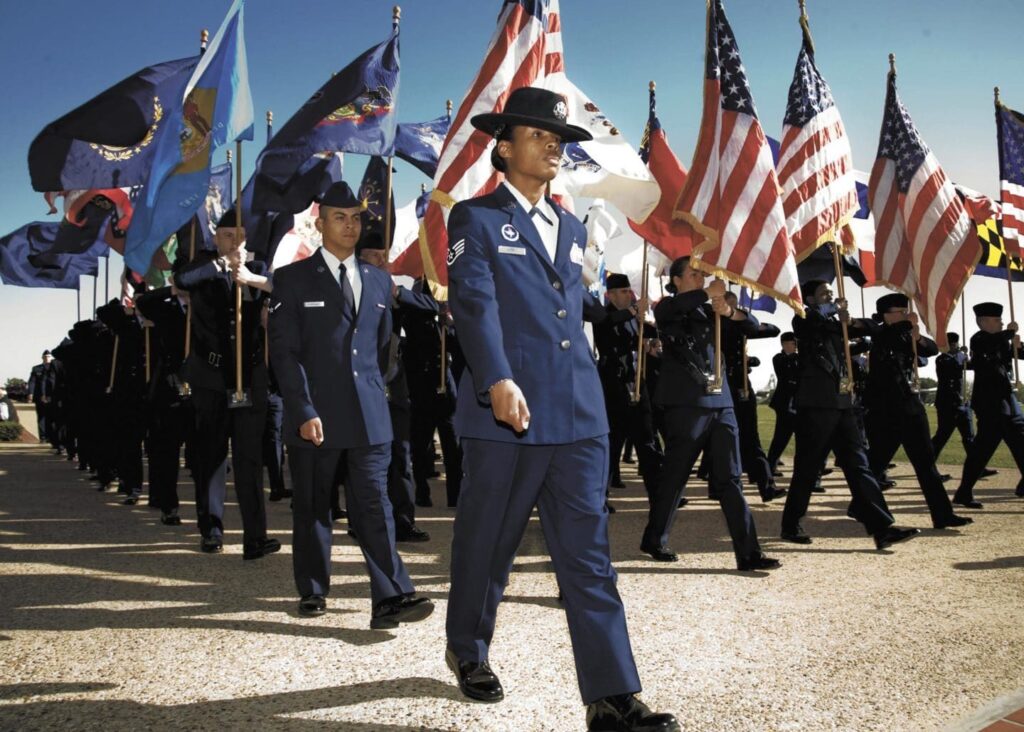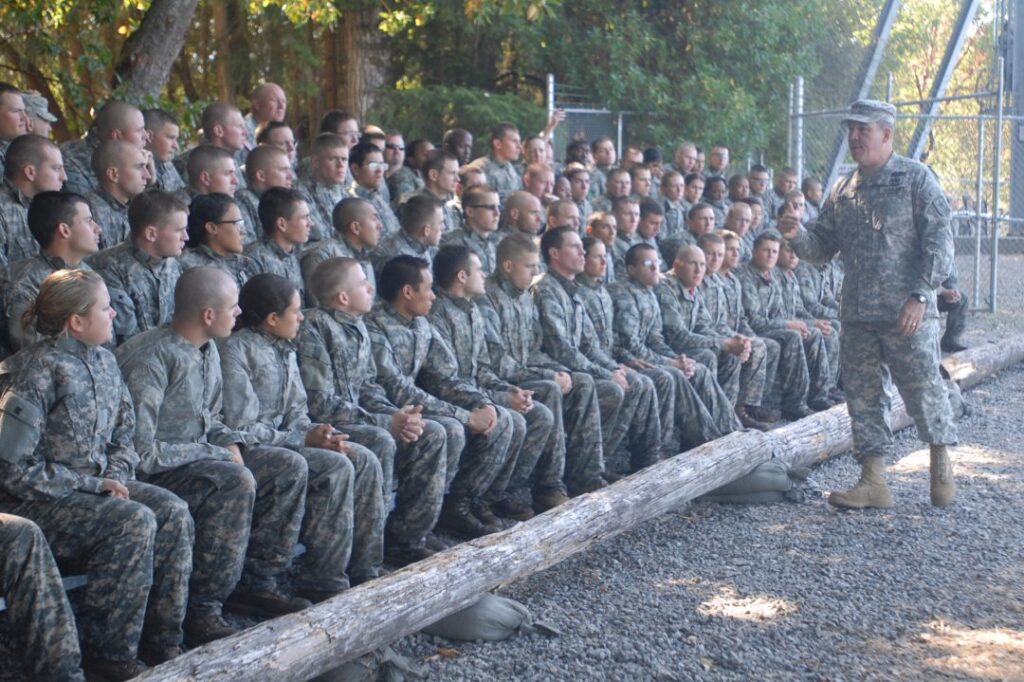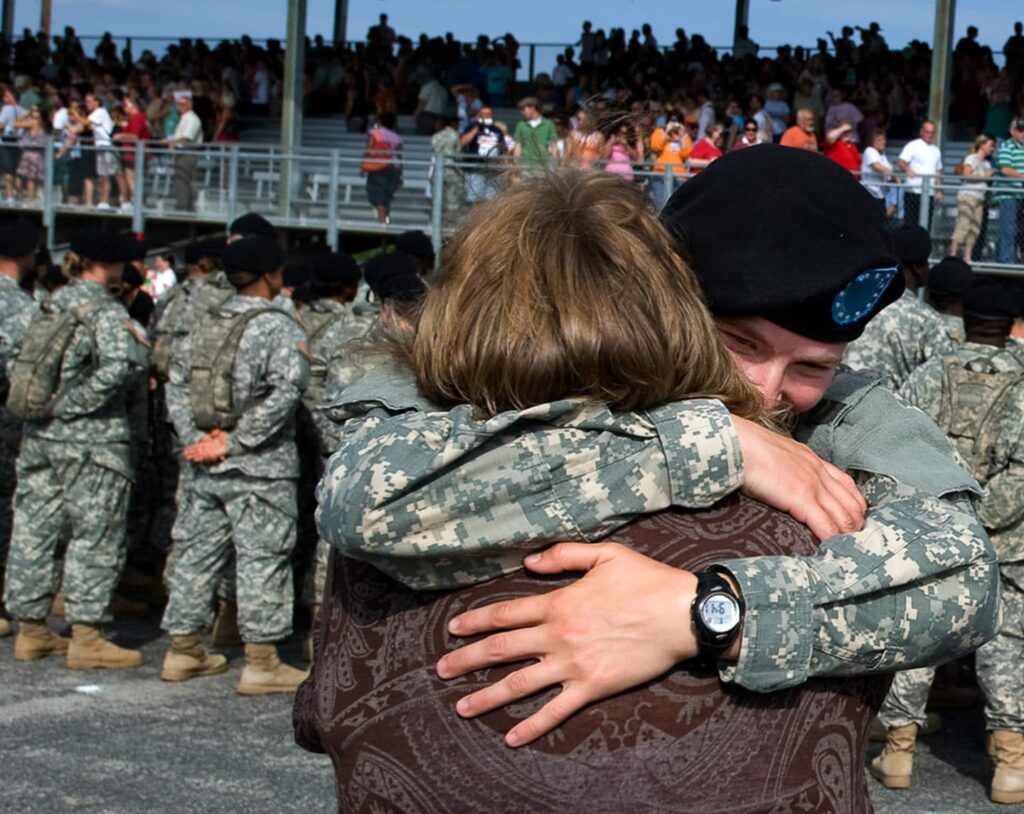Sand fleas, fire ants, and temperatures soaring into the 100-degree Fahrenheit mark with what feels like 100 percent humidity, might sound like home to some of the southern men and women that have decided to join the Marine Corps. To their friends up north though, coming to MCRD Parris Island may be a very intimidating idea. Marine Corps Boot Camp already boasts itself as the hardest training of all our military branches. To have to train the hardest, and in one of the most difficult climate regions, can seem daunting. It has been suggested to try and go during the winter months. Although, with the rain and cold temperatures in the morning and evening, is it really any better than summer?
It’s hard to prepare for Marine Corps boot camp, but sometimes it helps to have a little knowledge of what to expect before going.
Which Marine boot camp will I go to?
MCRD Parris Island is one of two recruit training depots for the enlisted men and women joining the Marine Corps. It is the only location that women recruits will train at.
Anyone, who lives east of the Mississippi River, with the exception of Illinois and Indiana, will go to Parris Island for Marine Corps boot camp.
MCRD Parris Island’s mission motto is “We Make Marines.”
Their mission is pretty straight forward, and for someone who walks off the island as a Marine, they should be extremely proud. The 13-week intense training is no easy feat, but it is worth it if you truly want to call yourself a Marine. Below is a brief overview of the sort of things you can expect while you are there.
Parris Island Boot Camp Phases
Phase One
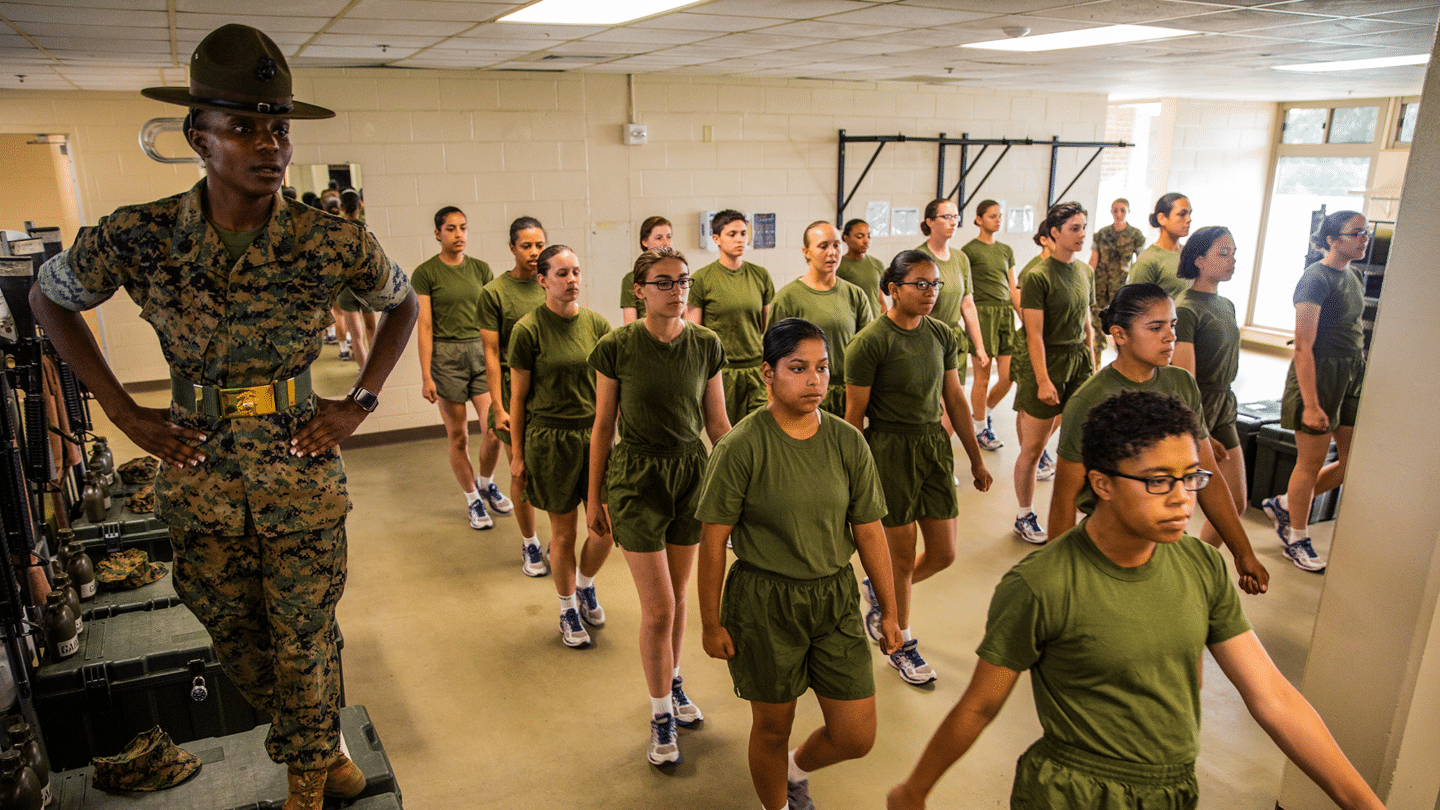
The first phase on Parris Island focuses on moving the recruit forward into the next chapter of their life. This couldn’t be more evident from the moment they step off the bus and are greeted by the yellow footprints. Here they will stand and begin processing.
The tradition of the yellow footprints is to instill the gravity of their meaning. They are posed in such a way that the recruits will be expected to stand at attention in and also represent the Marines that have come before them.
From there they will enter through two large silver doors. The significance of this is that they will never walk through those doors again. It is the beginning of their transformation, leaving their old selves behind and moving forward to becoming Marines.
During the first week of processing, recruits will get medical examinations, haircuts, be issued their military gear, and take an initial strength test. They will begin to learn how to walk, talk, and eat like recruits. With so much information to cram into 13 weeks, uniformity is important to establish right away.
At the end of the first week, they will have one of the most memorable days of their lives, when they meet their Drill Instructors. It will be a stressful day, but one every Marine remembers.
Phase Two
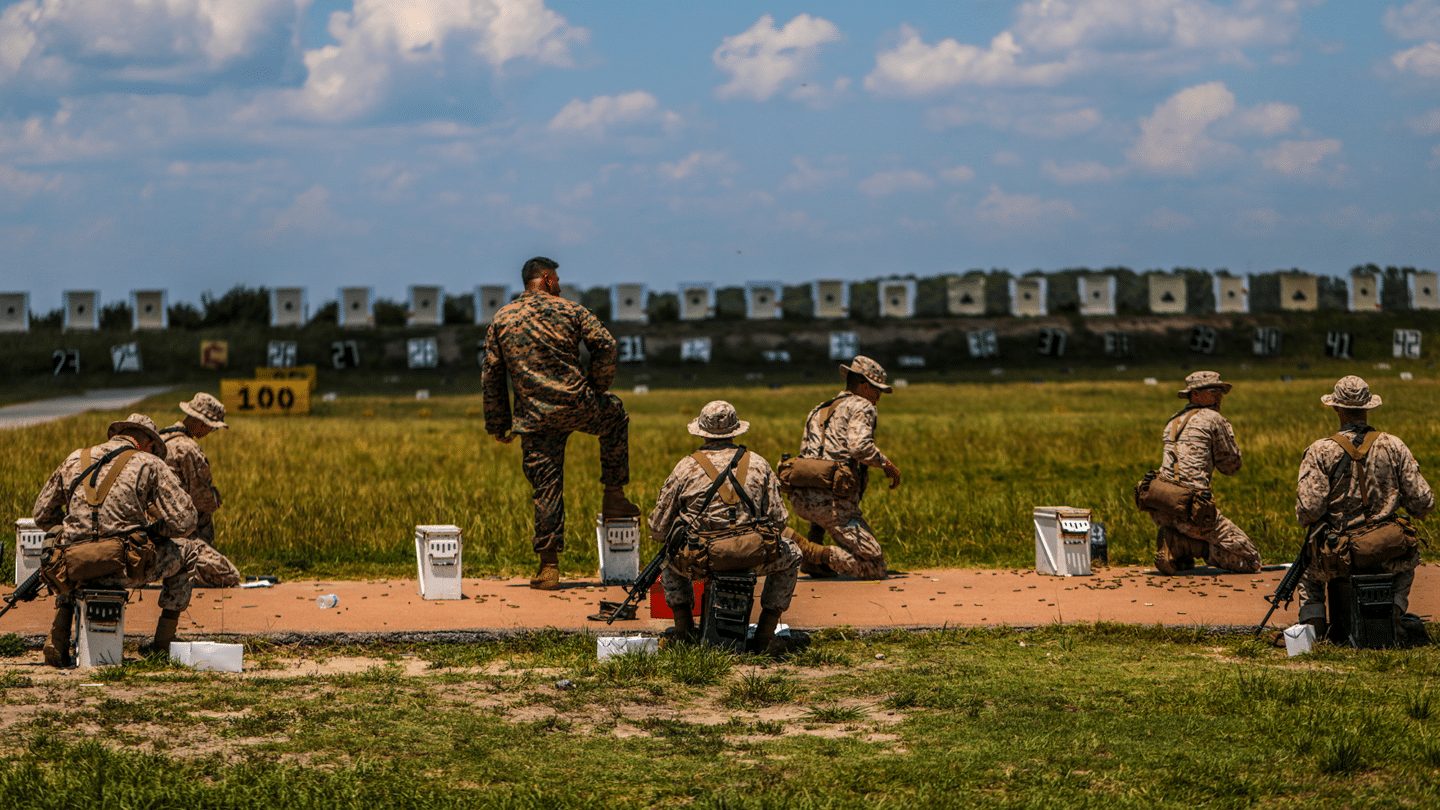
This phase consists of drilling the ideals of the Marine Corps more into the minds of the recruits. This phase also includes their marksmanship training. For two weeks, called Grass Week, they will learn the fundamentals of marksmanship. This training is something that truly separates the Marines from the other branches.
Phase Three
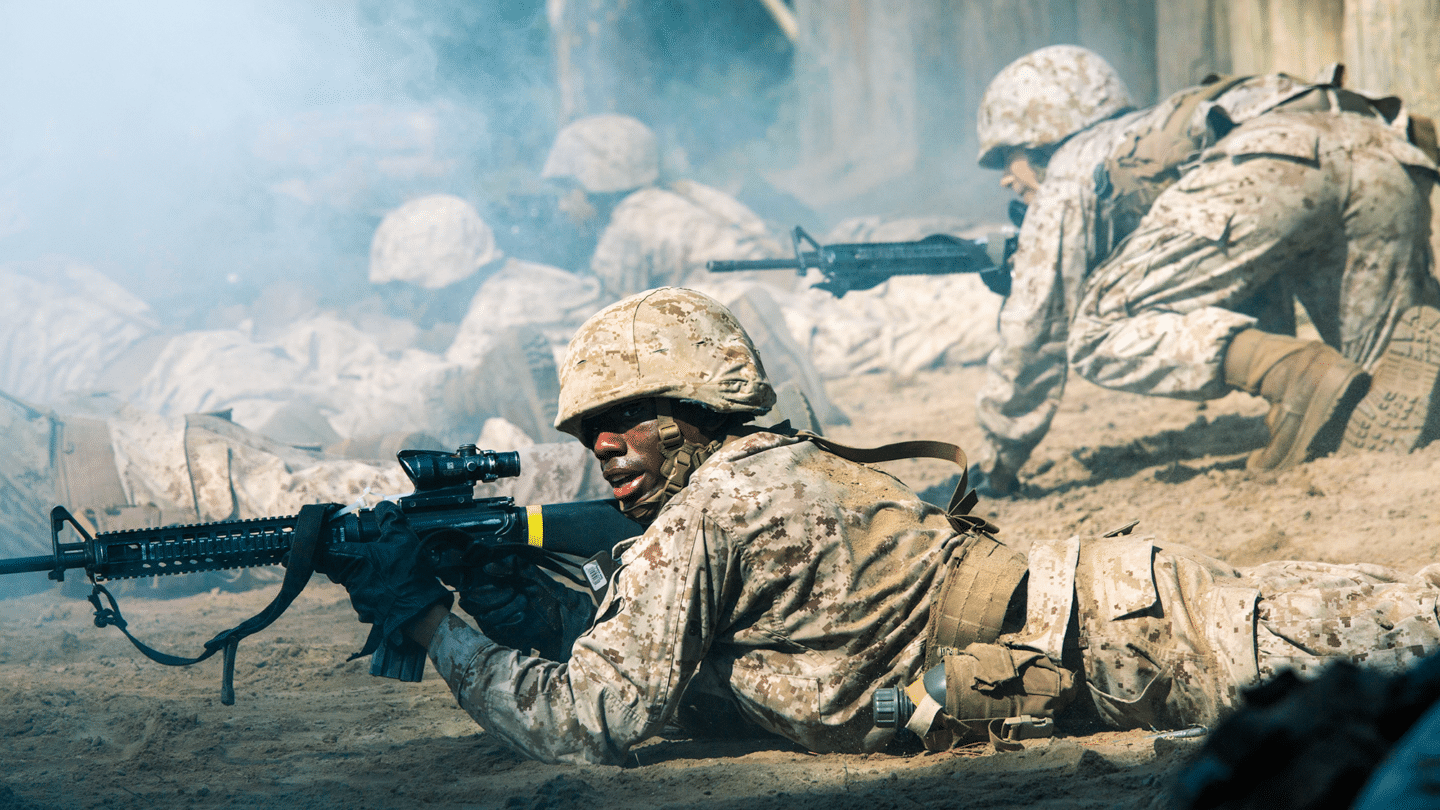
During phase three recruits will face their hardest task in training. They begin the phase with the evaluation process. Daily, their Drill Instructors will evaluate their performance and test them on what they have learned in boot camp thus far.
Recruits will learn tactical movements, hand and arm signals, land navigation, and additional combat marksmanship training. This training all leads up to the final moment before receiving the Eagle, Globe, and Anchor and getting the privilege of calling themselves Marines.
The final battle recruits must win is the Crucible. A 54-hour long exercise, recruits will take everything that they have learned during their time in boot camp, work as a team, and finish it with the pride of knowing that they’ve earned the title of Marine.
Phase Four
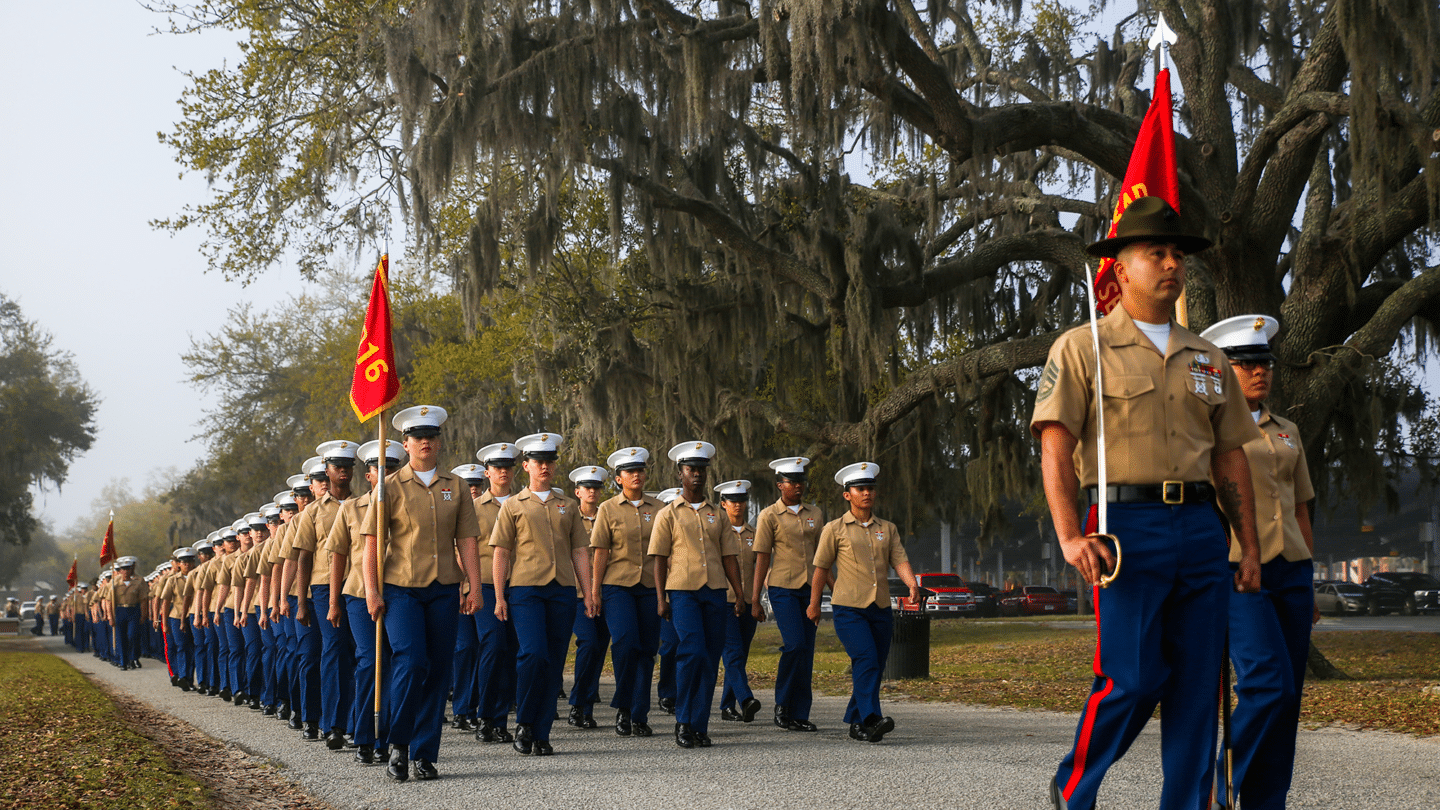
After the Crucible, Marines will have two weeks remaining of boot camp. This time is dedicated to making sure the Marines are ready to enter the fleet. It is a time for them to successfully transition from being recruits to Marines.
It is a tough job and one that will feel like it is going to last forever when you are in the middle of boot camp. However, it will eventually end, and the person that was up for the challenge will have the honor and pride of becoming a Marine when the 13 weeks are over.
A few departing words from a previous Marine who once stood on the infamous yellow footprints at Parris Island,
“Live chow to chow, Sunday to Sunday, and remember that the quickest way to leave the island is to graduate.”
Parris Island Boot Camp FAQ
Marine boot camp was not designed to be easy. Boot camp will challenge recruits mentally and physically. Recruits will be required to always push forward to complete their mission and reveal their fighting spirit.
After boot camp, new Marines will receive 10 days of leave before they continue their training at the School of Infantry.
Yes. Recruits are not guaranteed to graduate. They must meet ALL requirements in order to earn the title of Marine. If a recruit can’t meet the standards they will be sent home.
You won’t need to bring much with you to boot camp. The Marine Corps will make sure you have everything you need that is necessary. But here is a list of things you can and can’t bring with you to Parris Island.
There is some required knowledge that you should try and learn before leaving for boot camp. Click here to learn more about what to know before you go.
Sources:
http://recruitparents.com, https://www.mcrdsd.marines.mil/, https://www.mcrdpi.marines.mil/

